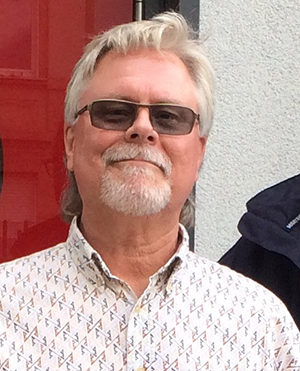
Michael Ramsey has made a career out of his passion for making wine and beer, despite growing up in a family that practiced temperance. He is the teaching laboratory manager for the UC Davis Department of Viticulture and Enology and an instructor in UC Davis Continuing and Professional Education’s brewing and winemaking programs. He teaches the Wine Microbiology Workshop and Introduction to Wine Chemistry.
Ramsey’s passion for German wines and English beers developed during his years abroad in the 70s when California’s wines were just starting to show up on the map and the U.S. craft brewing industry had yet to begin. While in the UK, he discovered a homebrewing book on how to brew all the beers he’d been enjoying abroad and started brewing. When he started thinking about a career, a German winemaker told him about the UC Davis Viticulture and Enology program. “I had no idea!” he said. “But making a career out of these endeavors of mine seemed like a good way to go through life.”
How did you get into teaching?
I began teaching as a guest lecturer for brewing courses in the 90s, and as it turned out, I really enjoyed teaching. When the opportunity arose to return to the Viticulture and Enology Department as the teaching laboratory manager, I was all in. It occurred to me that I was far more likely to have an influence in these industries doing research and transferring knowledge than I would by making some single product.
How would you describe your teaching style?
I generally start off each class with a round of student introductions. Not only does this help break the ice, it also helps students see who they might want to network with and helps me fine tune my strategy for each class. It's my hope that the students have a great day learning about a subject they have an interest in, and that we can transfer useful scientific knowledge and techniques in the process.
What do you want students to take away from your classes?
There will always be those geniuses and savants in every field who are successful without understanding the science behind what they do. But most of us are not in these categories. Understanding the science of winemaking chemistry and microbiology gives us insight into how these systems work, highlights the production and analytical choices available to us, and vastly increases the probabilities of a successful outcome. For me, ultimately, the art of winemaking is how you apply the science.
Do you see a lot of students taking both your beer and wine courses?
There is a subset of students who take both wine and beer classes. Some are simply avid home hobbyists and the current availability of equipment and supplies (something that wasn't even a pipe dream in the 70s) allows people with a small amount of disposable income access to these hobbies. Also, with changes that have occurred in recent years to state and local laws, it is more common to see companies making more than one type of alcoholic beverage. UC Davis Continuing and Professional Education offers one-stop shopping for employees of these firms.
